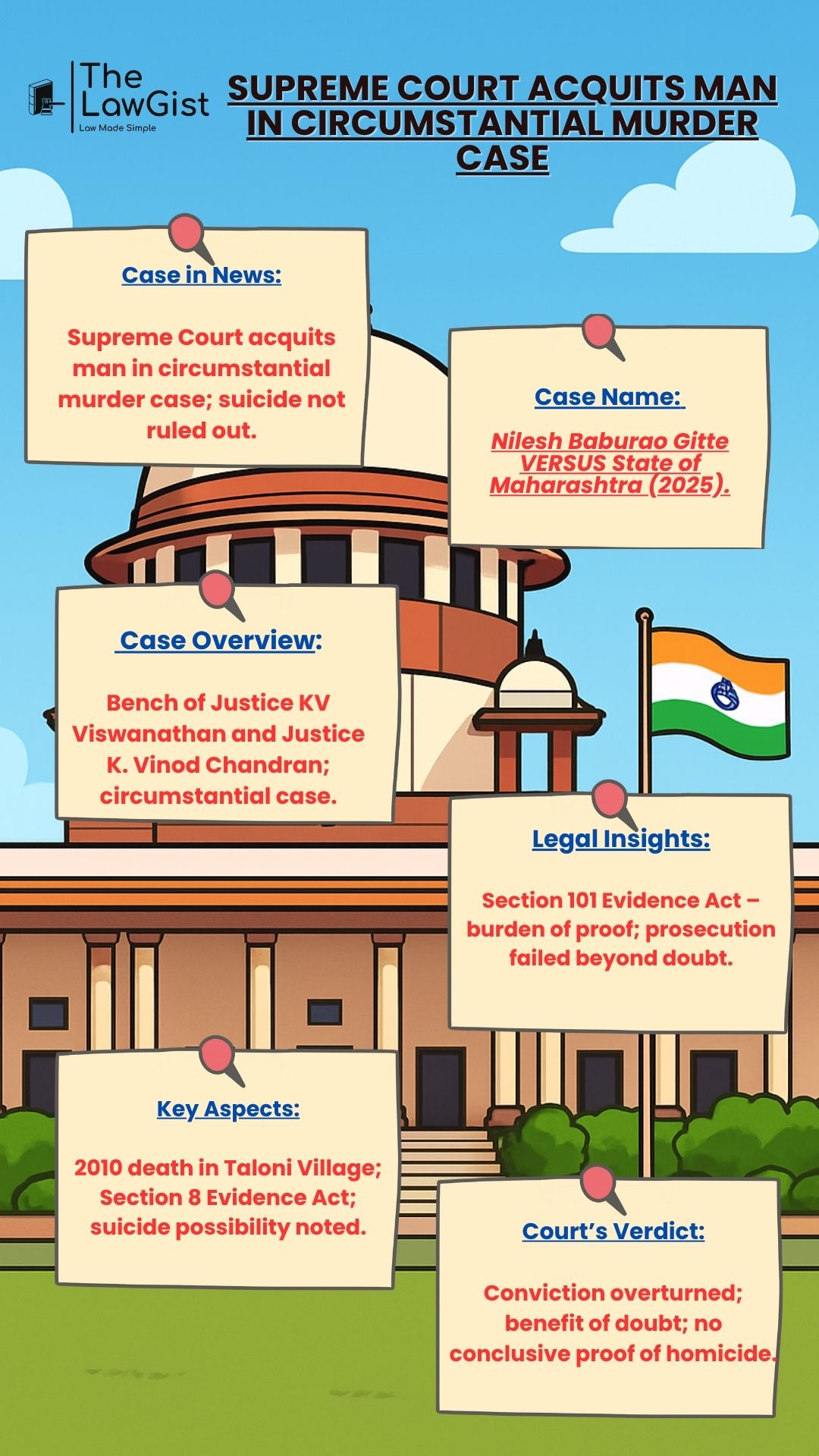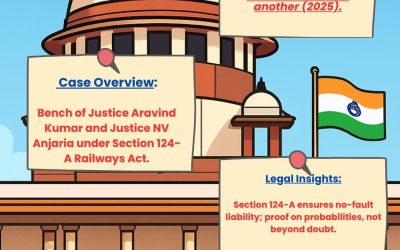
Supreme Court acquits accused in a circumstantial murder case, emphasizing that suicide could not be ruled out and prosecution failed to prove guilt beyond reasonable doubt.
Case in NewsThe supreme court acquits man in circumstantial murder case, holding that suicide could not be ruled out and prosecution failed to establish guilt beyond reasonable doubt . |
Discover powerful Latin Maxims and simplify complex legal terms in seconds.
Case Overview
Case Name: Nilesh Baburao Gitte vs. State of Maharashtra
A Division Bench of Justice KV Viswanathan and Justice K. Vinod Chandran of the Supreme Court set aside the conviction of a man accused of murdering his mother in Maharashtra . The Court found that the case was based entirely on circumstantial evidence and lacked definitive medical or forensic proof of homicide . Both the Trial Court and Bombay High Court had convicted the appellant, sentencing him to life imprisonment which was overturned by the Supreme Court .
Step into the world of justice with Courtroom Chronicles
Key Aspects
Before delving into the merits, the Court emphasized that criminal cases based on circumstantial evidence demand strict scrutiny and the prosecution must exclude every possible hypothesis except guilt .
- The alleged incident occurred in 2010 in Taloni Village, Ambajogai, Maharashtra .
- The police received information about a “doubtful death” and found a body prepared for cremation .
- The appellant, son of the deceased Sunanda, was accused of hurriedly organizing the cremation .
- The doctor opined “asphyxia due to strangulation,” but later admitted it could be due to hanging .
- The prosecution failed to produce direct evidence linking the appellant to the alleged murder .
Legal Insights
The Court relied on the principle of proof beyond reasonable doubt under Section 101 of the Indian Evidence Act, 1872 emphasizing that suspicion, however strong, cannot replace proof .
- Section 8, Evidence Act (currently section 6 of Bharatiya Sakshya Adhiniyam)– motive must be proved through reliable evidence .
- Medical ambiguity indicated suicide could not be ruled out .
- Lack of credible chain of circumstantial evidence failed to meet the standards for conviction .
- The Court reiterated that false implication and procedural flaws vitiate conviction in criminal jurisprudence .
Court’s Verdict
The Supreme Court acquitted Nilesh Baburao Gitte, setting aside the conviction and sentence imposed by lower courts . It observed that the prosecution failed to establish homicidal death and that suicide remained a plausible explanation, thus granting the benefit of doubt to the appellant .
Source – Supreme Court of India
Read also – Bharatiya Sakshya Adhiniyam
The LawGist ensures exam success with quality notes—TPL, Current Affairs, Recent Judgments, and more. Backed by trusted resources and videos, The LawGist is every aspirant’s first choice. Discover more at thelawgist.org.







